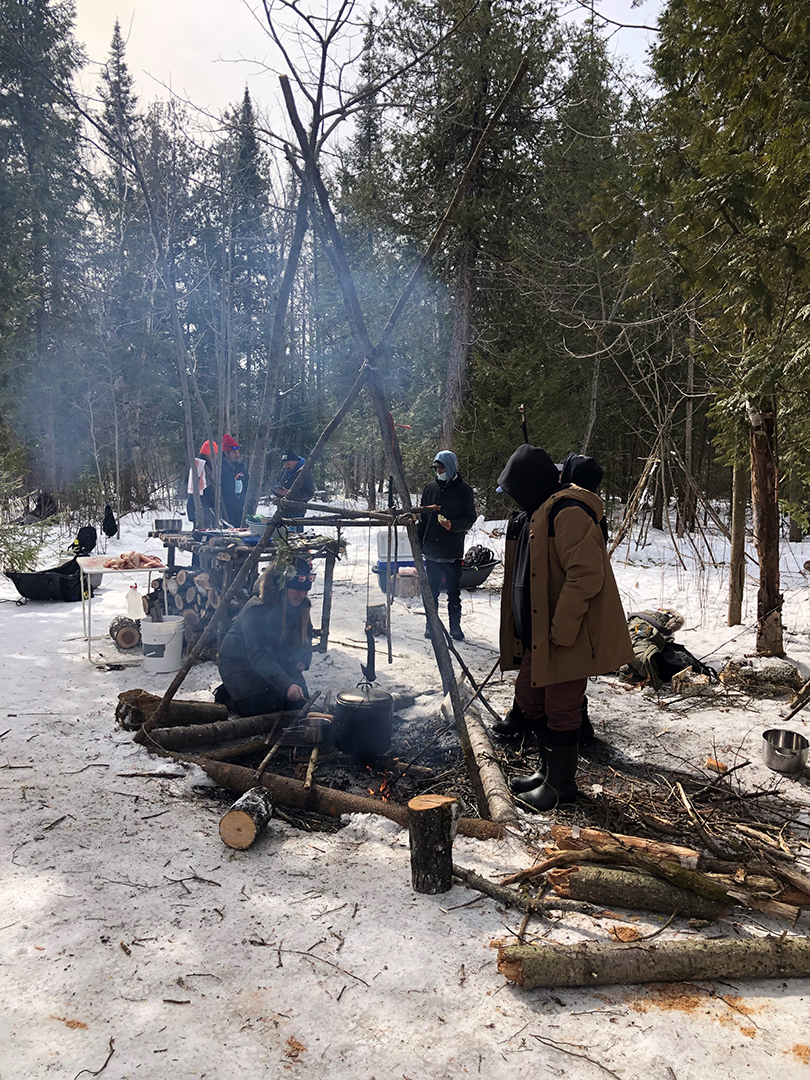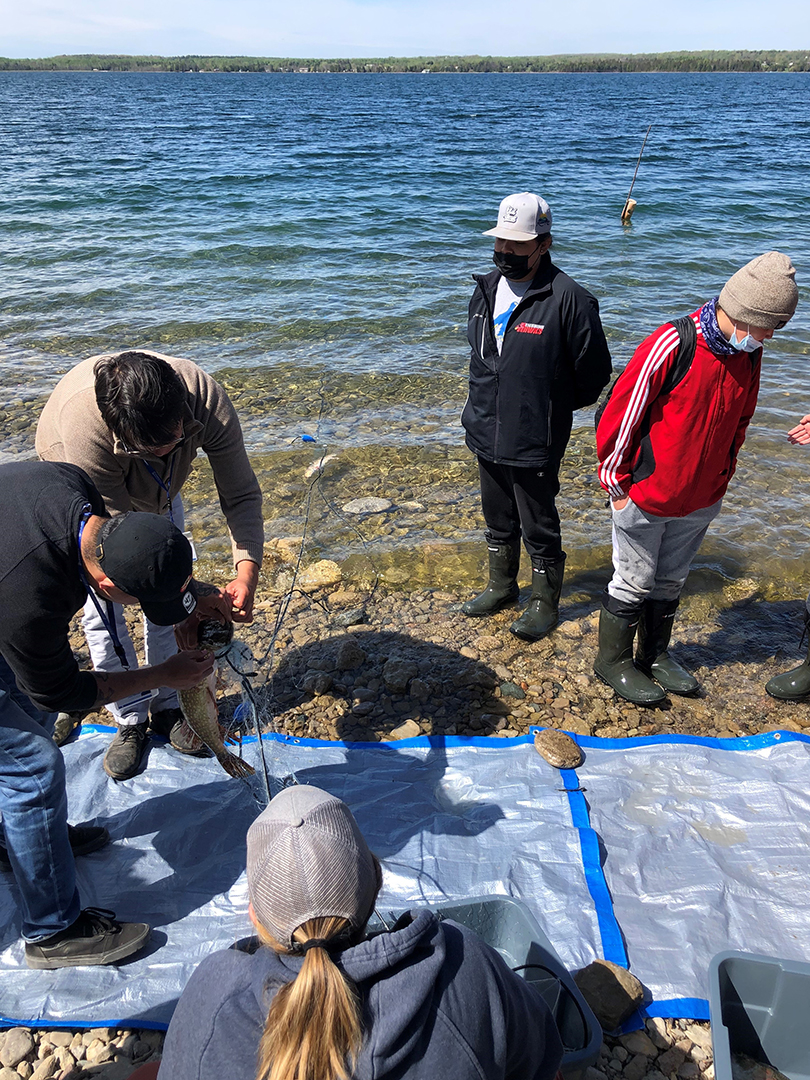
Wiikwemkoong High School – Wikwemikong, ON
Grant term 2020-2022
The Wiikwemkoong High School provided opportunities to enhance student’s learning and understanding of a variety of concepts through the green industries course offered. The students focused on growing vegetables from the seeds in the community greenhouse, to rearing them and transplanting them into the local community gardens. They grew flowers, herbs, fruits, tobacco (for sacred purposes only) and a variety of other vegetables. The classes plan on harvesting some of the items for the schools use in the fall.

The High School students were introduced to farming by raising and rearing chicks from eggs (incubators) and gained knowledge on the cycle of the poultry and potentials for farming. They spent time discovering cattle farming and how important it is to the local economy and created knowledge of where our food comes from. The cattle will be harvested for the local food bank.
A salad bar was purchased, however, due to the pandemic, they were not able to use it within the Nutrition Program. In addition to providing breakfast and lunch to the high school students, the school nutrition program was also able to provide healthy and appropriate snacks and meals for classes that were engaged in land-based learning. When possible, these meals were designed to be able to be prepared to eat by the students themselves, this took the form of individual ingredients being provided and later assembled into a healthy soup warmed by an outdoor fire, or sometimes a healthy side dish of salad or bread would be provided to accompany wild caught/harvested foods like fish. The Nutrition Program was able to incorporate into its meals some of the traditionally harvested bush foods into the regular meals, such as maple syrup and pancakes using maple syrup produced by land-based classes from within our community. Additionally, locally harvested foods such as Leeks, berries, corn, fiddleheads, asparagus, morels, and locally caught fish.

Several land-based learning partnerships were experienced/explored throughout the school year that created the connections to nutrition. This all contributed to student awareness and learning regarding safe food handling, harvesting, and preparation, in a manner that was easily incorporated into curriculum-based learning through multiple grade levels. The opportunity to meet members of the community that are engaged in farm/bush to table initiatives was an additional benefit for the students. This would include elders, knowledge keepers, and community workers in various programs.
In keeping with Anishnawbe traditions we were able to make connections to our past as well as incorporate a sustainable future. Overall, the students enjoyed the discoveries and the importance of planting, gardening, and farming techniques.
See more farm to school grant stories!




